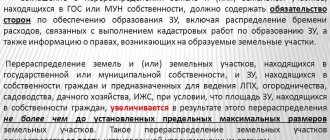Home/Apartment building/Responsible tenant
Renting an apartment is a natural process, especially when it is impossible to save up funds to purchase your own home. Tenants can live in both municipal and privatized types of apartments. Let's consider the rights, responsibilities, shift rules for each of them, as well as the features of legislative regulation within the framework of this issue.
Who is considered a responsible tenant?
Despite the fact that currently the concept of a responsible tenant has lost some of its relevance and has been removed from the housing code, its meaning should be studied in detail.
Attention! If you have any questions, you can chat for free with a lawyer at the bottom of the screen or call Moscow; Saint Petersburg; Free call for all of Russia.
Attention
A responsible tenant is a person who decides to rent an apartment while maintaining the obligation to pay rent and the amount for using utilities. He is also the main manager of the home, since without his consent it is impossible to carry out real estate transactions, in particular, to discharge someone, make redevelopment, or sell. That is, in fact, the responsible tenant acts as the owner of the residential property. When a share is sold, the rights to dispose of housing are liquidated (Article 61 of the Housing Code of the Russian Federation).
What governs the tenancy agreement?
All of the above-mentioned nuances of the parties’ legal relations can be considered and discussed only if there is an officially signed agreement.
It can be prepared with the help of representatives of a real estate agency or a lawyer. It can be written independently in two copies for the landlord and the tenant.
All requirements for this document are specified in Article 671 of the Civil Code of Russia.
To prepare a finished document, simply copy all existing paragraphs. The following must be indicated :
- passport details of the parties to the transaction;
- title documents for living space;
- length of stay;
- the possibility of “moving in” third parties who are not members of the tenant’s family.
The parties may, on their own bilateral initiative, include any other clauses . For example, about the tenant’s liability in case of flooding, etc.
This includes a popular option for providing property for temporary use, taking into account in the amount of payments the temporary residents’ performance of repairs or other home improvement operations.
The agreement is often accompanied by an inventory of the furniture in the apartment at the time of delivery, its technical condition, and the technical condition of the property itself. You can learn about how to draw up an act of acceptance and transfer of housing when renting from our article.
The agreement is personally signed by both parties to the transaction; it can also be signed by an authorized person, if the latter has a notarized power of attorney to carry out such real estate transactions.
Normative base
Current legislation, in particular the Housing Code of the Russian Federation, promotes a clear division of rights and obligations assigned to the owners of the housing stock. The responsible tenant, in accordance with the definition of this concept, bears full responsibility for the condition of the apartment to the municipality. While the housing belongs to him, he has the right to dispose of it. When he transfers it, ownership passes to the other party to the transaction, and even if it remains registered, there is only the possibility of residence, but not disposal. These rules are regulated by Art. 67, 69 Housing Code of the Russian Federation.
Features of this procedure
You can live in a municipal apartment only under a social tenancy agreement.
Before privatization, housing officially belongs to the state and any manipulations with it must be carried out only with the permission of the relevant authorities.
Sometimes in a rented apartment it is necessary to change the responsible tenant, which involves re-issuing documents, including the social tenancy agreement.
The procedure is regulated by law and requires the consent of all family members.
Apartments on the balance sheet of the municipality are transferred to citizens under a social rental agreement.
The document is concluded with the tenant, who was previously called the responsible tenant. Currently there is no such concept in the Housing Code.
In the new version of Law No. 82 of the Housing Code of the Russian Federation, responsibility for the safety of municipal property is imposed on the tenant.
He becomes a citizen:
- adult;
- capable
As a rule, an apartment is issued not to an individual, but to a family, taking into account the interests of all its members. For example, children of different sexes over the age of 9 have the right to a separate room.
And each family member becomes the owner of the apartment, receiving an equal share with everyone else in the event of privatization of housing.
When renting an apartment, a family has the opportunity to conclude several contracts at once, if each person occupies a separate room.
But few take such a step, especially with minor children.
It is much more convenient and faster to conclude one general agreement valid for the entire apartment and all family members. All family members have equal rights to living space.
Adding, signing out new tenants, exchanging, selling, renting out and carrying out other manipulations with the apartment is possible only with the consent of all family members.
Family members of the employer include:
- Children.
- Parents.
- Spouse.
- Other relatives recognized as such in court and leading a common household with the employer.
Who can be an employer
The employer can be any adult and capable family member. Who exactly will take responsibility for the living space is decided jointly.
All family members must give their consent to recognize a person as an employer.
If the family cannot reach a common opinion, then the decision is made by the court. It is also possible to conclude a social rental agreement with each person applying for an apartment.
If we think adequately, then the employer most often becomes a spouse with minor children.
And it is problematic for an elderly person to go to various authorities when conflict situations arise.
The main condition is that the tenant must be registered in the apartment. A person “from the street,” even if he is a relative of the responsible tenant, cannot become a tenant, nor can he apply for housing.
Rights obtained
The rights of a tenant of a municipal apartment are specified in Article 67 of the Housing Code of the Russian Federation:
Any changes in the apartment, including redevelopment, moving in new residents or renting, are possible only with the consent of all family members, that is, the owners of the apartment.
If their rights are violated, then justice will be restored through the judiciary.
As for the requirements for repair and/or exchange of an apartment, the decision should be general.
The tenant will be required to write an application addressed to the landlord, present a social tenancy agreement and the written consent of all co-owners of the property. Therefore, there is no need to talk about employer privileges.
The only thing that does not require the consent of other members is the registration of the employer’s minor children.
Persons under the age of 18 are registered in an apartment with a parent unconditionally, and no one can contradict this rule.
New responsibilities
The responsibilities of the tenant are specified in the Housing Code and the social tenancy agreement.
They may vary depending on the requirements of the lessor and the regulations applicable to this process.
Responsible tenant in a municipal apartment
While living in a municipal apartment, all rights and obligations of citizens are identical, as stated in Art. 69 Housing Code of the Russian Federation. That is, in fact, the home belongs to the state, but the person to whom it is “attached”, to whom it is “assigned”, can dispose of it at his own discretion.
IMPORTANT
In the event of death or disappearance of the tenant, relocation of the main tenant, divorce, arrest, the selection of a new main tenant is required, who must meet two basic requirements - reach the age threshold of 18 years and have a permanent place of work.
The rights of all residents in a municipal apartment are equal. If the responsible tenant previously lived alone, after his death the home is returned to the ownership of the municipality. If he has minor children or other family members, they will be included in the text of the social tenancy agreement and will receive the right to lifelong residence in the apartment (Article 82 of the Housing Code of the Russian Federation). Therefore, most often people come to the privatization process, which allows them to transfer apartment property by inheritance (Law No. 1541-1 of 07/04/1991).
Ownership and registration
If the apartment is municipal, then the responsible tenant must be registered (registered) in it. Upon discharge from it, a change of employer occurs, which is secured by a social tenancy agreement, which is concluded for another person. But when the apartment is owned, the responsible tenant may not be registered in it. However, lawyers almost always have difficulties with the exact definition, since it is ambiguous.
Most likely, this happens because the concept of “responsible tenant in a municipal apartment” is absent in the legislation in force in the Russian Federation. Most often he is called the tenant, a person who represents not only himself, but also members of his own family before the landlord. It is the terms of the contract that give the tenant responsibility, although he has no advantages over family members registered in this apartment. And today, a responsible tenant in a municipal apartment cannot move in or evict someone without the written and notarized consent of everyone registered in this living space (except for minors).
Rights and obligations of a responsible tenant
If we refer to Art. 67. Housing Code of the Russian Federation, it is noted there that the main tenant, on the basis of a drawn up social contract, is endowed with the following list of powers:
- an invitation to stay in the territory of the dwelling of other persons;
- renting out part of municipal premises to other people;
- provision of living space to temporary residents for non-long-term living purposes;
- presenting claims related to the replacement or exchange of a residential property if it does not comply with the stated requirements and standards adopted in the state;
- requesting major repairs from government and housing structures, if the actual condition of the house requires this fact;
- requirement to provide a certain list of utilities if they are not supplied or are supplied of insufficient quality;
- taking direct participation in the process of maintaining the aggregate part of the property of an apartment building.
In addition to the rights, Article 67 of the Housing Code of the Russian Federation assigns a certain list of obligations to the responsible tenant:
- ensuring monitoring of the safety of real estate;
- operation of a residential building in accordance with its direct and immediate purpose;
- carrying out current repairs at your own expense;
- taking a number of measures related to maintaining optimal condition on the territory of a residential property;
- Regular payment of utilities and payment of amounts for accommodation in the amount provided.
For your information,
the same responsibilities of the responsible tenant are prescribed in the lease agreement, the rules of which are provided for in Art. 606 of the Civil Code of the Russian Federation.
Controversial issues
Sometimes citizens are afraid of being evicted from a municipal apartment and want to become tenants themselves. Are such fears justified?
Let's look at it using an example. In a municipal apartment, father and daughter are officially registered. The responsible tenant is the father, who actually lives in the specified living space. However, the daughter is worried that she might be evicted from the apartment, so she wants to re-register the social tenancy agreement for herself. After which, she thinks, everything will be normal, since all receipts will come in her name. It should be noted here that such fears of the daughter are unfounded. Her father does not have the right to remove residents from the municipal apartment. There are no legal grounds for this, confirmed by legal norms. This is enshrined in Article 69 of the RF Housing Code. The tenant has equal powers in relation to the residential premises with other residents.
However, sometimes judicial precedents appear when a person does not appear in an apartment for more than five years. Discharge occurs only through the court through a civil process, during which the individual is declared missing. Accordingly, based on a court decision, a person is deregistered.
One of the most significant points is the joint payment of receipts.
This responsibility rests with the responsible tenant. However, if another tenant has receipts or other evidence that he also participated in making payments for utilities, then it will be easier for him to confirm the fact of living in the specified apartment.
What is DSN?
The abbreviation DSN stands for social rental agreement (Article 60 of the Housing Code of the Russian Federation). It is a special agreement, according to which residential premises located within the state or municipal housing stock are provided for the use of citizens who need to improve their living conditions. The basis for its preparation is the decision of the local government body, adopted on the basis of the norms of the Housing Code, Parts 3, 4 of Art. 57, as well as Art. 63). Another authorized body has the right to make the same decision in situations provided for in paragraph 6 of Art. 12, paragraph 5, art. 13 Housing Code of the Russian Federation. The allocation of living space is carried out in accordance with state regulations, the degree of need for improved conditions, and the number of people in the family.
In Art. 60 of the Housing Code of the Russian Federation states that in accordance with a social tenancy agreement, one party, which is the owner of a residential premises of a state or municipal housing stock (or a body acting on its behalf), has an obligation to transfer to another party - a citizen in need of improved living conditions, residential premises for use or possession for the purpose of living there under the conditions specified in the Housing Code of the Russian Federation. It also states that the DSN does not imply the establishment of a time frame for action, and a change in a number of provisions does not act as a reason for terminating the document.
Social hiring
First of all, let's briefly talk about what social hiring is and who it is intended for. If a person and his family do not have their own apartment, he may be provided with a separate living space free of charge under a special agreement.
This is called social hiring.
The agreement is concluded between the responsible tenant (this concept is no longer used by law) and the local executive authority.
According to the social tenancy agreement, the resident cannot control the legal fate of the apartment, that is, alienate it: sell, donate, transfer by inheritance .
Housing is provided to those categories of citizens who have a priority right to it. These include: orphans, war veterans, as well as the poor, liquidators of the Chernobyl accident , and disabled people.
The apartment provided cannot be less than the values established by legal standards, that is, a certain number of square meters per family member. In addition, certain requirements must be met. For example, children of different sexes should have different rooms.
The powers and duties of the responsible tenant are secured by the provisions of the Housing Code. However, all rights relating to the use of the apartment also apply to the tenant’s family, as well as all other residents.
As for responsibilities, their range is not the same.
Payment of utility services
Payment for the use of utilities by the responsible tenant is made in accordance with the general rules and regulations and is subject to regulation by Art. 155 Housing Code of the Russian Federation. Clause 1 states that the fee must be paid every month before the 10th day following the expired reporting period, unless a different interval is established within the framework of the apartment management agreement. The 2nd paragraph stipulates that the payment amount by the responsible tenant for the use of residential premises and utilities is carried out on the basis of the following elements:
- documents of a payment nature, including those issued electronically and posted in the system, submitted no later than the first day of the month following the expired period, unless a different period is regulated in the management agreement or decision of the general meeting of the HOA;
- information on the size of payments for housing and utilities, as well as arrears in payment, which is posted in the information system (Part 2 as amended by the Federal Law of July 21, 2014 No. 263 Federal Law).
Eviction of the main tenant
Since the status of the main tenant is generally the same as that of other people living in social housing, such a person can be evicted under the same conditions. There may be several reasons for eviction:
- Cash for utility bills and rent are not paid with enviable regularity and consistency - for 6 months;
- Gradual destruction of residential premises as a result of harmful activities of the tenant or members of his family;
- The rights of neighbors are constantly violated by family members of the main tenant or by him himself.
Important! Before evicting any negligent tenant for any of the above reasons, it is necessary to provide him with other comfortable housing in a hostel with an area of at least 6 sq.m.
How to find out who is the responsible tenant?
The identity of the responsible tenant appears within the framework of the social tenancy agreement, i.e. the agreement that was previously drawn up between the municipality and the responsible tenant. Within the framework of this contract, the full transfer of real estate for use by the citizen and his family is carried out. If you need to prove the fact of renting a municipal apartment, receive benefits or resolve other formal issues, it is enough to use a social tenancy agreement, which will act as proof of rent.
But sometimes a different situation arises: neighbors or third-party services need to find out who the responsible tenant is. For example, if the apartment was flooded, or the people living in it violate the rules of silence and order. You can find out the identity of the main tenant in this situation in several ways:
- from your city’s database (enter the address and find out who the apartment is registered to);
- based on a judicial request;
- through Companies House;
- by contacting the housing office;
- through the Technical Inventory Bureau.
The first place to contact is the management company. If this does not help, you can visit other organizations. Please remember that some of them require paid services.
How to become an employer
On the one hand, everything is simple, but as practice shows, this is not so. To understand everything in more detail, we will consider the following example:
Let’s say a granddaughter and grandmother lived in one common apartment, the granddaughter is listed in the contract and is registered. She always helped her grandmother and looked after her, and when she died, she buried her. Of course, the granddaughter’s parents were still registered in the apartment, but they haven’t lived there for a long time. Now the question is: “Does my granddaughter have the opportunity to get this housing?”
Let's take the Housing Code, Article 82:
That is, it is possible. But often, in reality, everything happens differently. The rest of the family members do not live in this living space and the granddaughter has no idea where they might be. Hence, the landlord has every reason to refuse to conclude a rental agreement with her, because she cannot provide the consent of the other two tenants to the municipality.
Then she will need to draw up a witness statement, which will be signed by three neighbors, stating that her parents have not lived here for a long time. And she ran a common household with her grandmother and buried her. She collects all these papers and goes to court and files a lawsuit. Of course, there is a possibility that two residents will be recognized by the court as former family members, and the municipality will also be obliged to recognize the granddaughter’s right to live in this apartment.
The court also has the right to make a division of social services. rental, that is, each family member will become a separate tenant of the apartment. This way, the rent will also be divided and everyone will pay separately.
How to change the responsible tenant in a municipal apartment?
IMPORTANT
In order to appoint a new main tenant, it is necessary to go through the procedure for re-registration of the VAT.
This is a standard mechanism that does not take much time. The first thing you need to do is contact the housing policy department with a statement containing information about the need to re-register the contract and a description of the reason. Subsequently, a new document is drawn up, and once it is ready, you should go to the Housing Office. There, a set of necessary procedures will be carried out on personal accounts and balances for payment of corporate expenses. An adult and able-bodied family member who is closely related to the deceased relative is usually selected as the new employer.
Citizen registration issues
The main questions most often concern the registration of tenants. If we are talking about a privatized apartment, then the owners are afraid to register tenants. But it is important to remember that in this way the law is violated. And the owner can be punished with a fine for having a citizen living with him without registration.
You can register a tenant either on a temporary or permanent basis. It is most profitable to apply for temporary registration, since after the expiration of the period the citizen will be automatically deregistered.
If you register permanently, there may be a problem with checkout. If a citizen refuses to voluntarily be discharged, this will have to be done through the court.
A citizen renting a home can be removed from registration if the following circumstances exist:
- No payment for the premises for a period of more than two months for short-term rentals and for a period of more than six months for long-term rentals.
- Violation of the use of residential premises in a gross form.
- Absence from the apartment without notice for more than six months.
- Convicting the tenant to serve a sentence.
If the extract is made on the basis of a court decision , then the owner of the apartment can independently contact the territorial department of the FMS, providing the court decision. On this basis, the extract is made without the consent of the citizen himself.
Often, residents of municipal apartments are faced with the issue of changing the responsible tenant . This may be required in the event of death or absence within six months. In such a situation, residents must contact the municipal administration with a corresponding application.
After it has been changed, you must contact the Housing Office to re-register personal accounts. This is necessary so that utility bills go to another owner.
If the death of a single tenant occurs, the contract is automatically terminated and the apartment again becomes the property of the municipality.
The responsible tenant has the right to register his close relatives in municipal housing. In this case, you will need to provide the consent of all citizens already registered in this apartment. An exception is the registration of a minor child. It is carried out automatically at the place of residence or place of stay of the parents. If they are registered in public housing, the consent of the other residents is not required.
An important point is that when registering close relatives in municipal housing, the norm of square meters per person is not taken into account. If we are talking about registration of a third party, it may be refused if the norm of square meters per person is not met.
Does the tenant have the right to move into the apartment?
Art. 35 of the Civil Code of the Russian Federation contains several basic rights that are vested in a responsible tenant:
- moving friends or relatives into a rented apartment only with the consent of the owner of the home; if this norm is violated, the landlord has the right to terminate the contractual agreement;
- provision of living space to temporary residents in agreement with the landlord; temporary residents are citizens who come from another locality or from abroad for some time.
Attention
If these rules are not observed, the landlord has the right to terminate the contract with the responsible tenant ahead of schedule without refunding the funds paid.
Non-privatized apartment
The tenant of a communal apartment during the validity of the contract is considered its temporary owner. He has many rights and obligations in relation to real estate, but more on that later. The responsible tenant must be an adult and of legal capacity. Even better if it works. If a whole family moves into an apartment, then in any case one person is determined among them. He signs the contract and is responsible for the apartment. If the family cannot choose its “leader,” the court decides the matter. Another important point is that in a communal apartment, both 1 person and a large family are considered a family. That is, here the word “family” is not used in the traditional sense. It serves more as a synonym for the word “employer”.
Does the responsible tenant have the right to vacate the apartment without consent?
In practice, agreements of this type are most often terminated by mutual agreement, but sometimes termination can be carried out at the initiative of the lessor. In Art. 687 of the Civil Code of the Russian Federation describes a number of situations in which a tenant may be asked to leave the premises. If we are talking about a social tenancy agreement, then it does not provide for the right of the responsible tenant to evict other citizens. However, in Art. 67, , Housing Code of the Russian Federation lists the grounds and procedures within which eviction can be carried out.
IMPORTANT
The Resolution of the Plenum of the Armed Forces of the Russian Federation No. 14 dated July 2, 2009 noted that if one of the family members is absent from the apartment for a long time, one can only deprive him of the right to use the residential premises.
DSN
An agreement regarding social rent includes everything that a responsible tenant must do: rights and obligations, a list of family members living with him, standards for the operation of housing, and the like, which do not contradict the law. Also, the agreement necessarily provides for the same liability in relation to persons declared incompetent by the court.
The regulations also provide for cases where the responsible tenant dies. Departmental and municipal housing is operated in accordance with Articles 60, 65 and 67 of the Housing Code. In the DSN, the legitimacy of the right to use an apartment is reinforced by the fact that when drawing up an agreement, the owner acts as a lessor, and the remaining citizens registered in the apartment act as tenants. Despite this, all residents registered in this apartment have an equal right to it. The responsible tenant is obliged to obtain the consent of everyone for every action he takes in relation to this housing.
Re-registration of the apartment
Art. 69 of the Housing Code of the Russian Federation assumes that family members of the deceased responsible tenant have the right to use housing. Within the framework of this legislative act, it is noted that such persons include:
- family members who lived with the deceased;
- children;
- parents.
All these citizens have rights equal to those granted to the responsible employer. Accordingly, their names should appear in the DSN. After the death of the main tenant, a municipal-type apartment is re-registered by drawing up a new DSN. The procedure for re-registration is reflected within the framework of Art. 82 of the Housing Code of the Russian Federation, which states that absolutely any citizen who uses housing on the basis of an individual contract, who decides to start a family, can demand the formation of a general DSN or replacement of the original tenant with the consent of other family members.
Accordingly, this rule applies to all family members, as well as persons equivalent to them upon the death of the main employer. In the course of this, joint property acquires a shared character and is subject to division in equal shares. In accordance with the norms of the above articles, all persons registered in a municipal apartment can count on further residence in it and registration of a new DSN in their own name. But one condition must be met: all other family members must give their consent to such an outcome. Minors and incompetent citizens do not have such rights.
Re-registration
When family members cannot agree and come to an agreement, all issues of re-registration of housing are resolved through the court. The tenant has the right to provide temporary housing to strangers, but only with the consent of the others living in the apartment (Article 67, part 1, paragraph 3 and article 70). The landlord must be notified of this in advance. After the death of the responsible tenant, the tenant may be a legally competent adult family member registered in the apartment.
In this case, you must also contact the management organization with a corresponding application, which must contain the consent of all those registered regarding the change of employer. Re-registration initiated for any reason must provide for such consent. The change of the responsible tenant occurs in this way. In addition to the written consent of all adult family members, a whole package of documents is submitted to the HOA: a passport of the citizen of the Russian Federation who claims the right to be a responsible tenant, an application and documents establishing the right to living space.
Nuances
As with any identical procedures, when changing the responsible tenant, you need to acquire a certain set of documents:
- personal account in original and photocopied format;
- ID cards of all family members;
- extracts from the house register;
- a social rental agreement drawn up with the municipal housing stock;
- certificate of discharge, death or disappearance of the previous main employer.
Any violations in the use of premises within the framework of the DSN are punishable by liability (Article 66 of the Housing Code of the Russian Federation).
Comments Showing 0 of 0
Legal changes
It should be noted that previously a housing warrant was issued to one specific family member. It was he who was subsequently recognized as a representative in the legal sense.
Now, after making some amendments, the term “responsible tenant” has disappeared from the terminology used by the Housing Code. That's why lawyers and legal scholars don't use it anymore. Instead, “tenant of residential premises” is most often found.
Also, a significant change was the signing of a social rental agreement with all family members, so that there would be no injustice or abuse on the part of any of the relatives.
It is important to note that even who occupies what room is taken into account.
All citizens living at the address specified in the agreement must be indicated in the rental agreement. Adjustments are made to it after the birth of the newborn.
This procedure cannot be bypassed, since the amount of utility fees directly depends on this. That is, utility services are required to know about the number of residents of the apartment.
Tenant rights. Do's and Don'ts
The contract is a guarantee of responsibility for compliance with rights and obligations
It is immediately necessary to clarify that the rights and obligations of the parties are reflected in the rental agreement, which must be concluded between the tenant and the owner of the apartment.
The only place where an employer or lessor can defend their rights is in court, and in the absence of an agreement, the court has no reason to conduct proceedings - who is right and who is wrong.
Since, from a legal point of view, there was no transaction, but the presence of unauthorized persons in the owner’s living space may raise questions of a completely different nature...
In addition to the provisions of the lease agreement, the rights and obligations of the parties are also governed by current legislation and are valid even if they are not reflected in the agreement. If the terms of the contract contradict the provisions of the law, the transaction will be declared invalid by the court.
Who should do the repairs?
One of the questions that arises most often regarding the rights of a tenant is whether he is obliged to carry out any repair work or make cosmetic repairs to the apartment.
According to Article 681 of the Civil Code, maintaining the rented premises in proper condition is the direct responsibility of the tenant, therefore, if ongoing minor or cosmetic repairs are necessary, he is obliged to organize and carry out repair work.
The same applies to the elimination of breakdowns and malfunctions of engineering systems (water taps, electrical communications, fiber optic lines of the Internet network, cable television), if these malfunctions occurred during the residents’ stay.
But the owner of the apartment must carry out a major renovation of the apartment, participate in the improvement of the areas adjacent to the entrance, and repair the entrance itself, in accordance with the provisions of the same Article 681 of the Civil Code.
Quite often, the owner of the apartment does not want to make cosmetic repairs and rents out the apartment “as is,” while the contract stipulates that the tenant will carry out the repairs to pay for the housing.
Sometimes the quality of repairs does not suit the tenants themselves, but the owner does not want to pay for the repairs. In this case, the tenant can make repairs only in agreement with the owner of the property.
Can the owner increase the rent?
Speaking about the rights and responsibilities of a tenant, it is necessary to highlight one of the “eternal” questions - can the owner increase the rent at his own discretion (and by how much)?
Perhaps there are no direct instructions in the legislation on how much you can ask for rent, just as there are no instructions on how much the owner can increase the rent; most often this is reflected in the contract.
However, there is Article 614 of the Civil Code, which states that the rent cannot be increased once a year. At the same time, Article 452 clarifies that changing the terms of the contract unilaterally (including increasing the rent) requires warning tenants 30 days in advance.
Who is responsible for damage to third parties
The tenant may be the cause of damage to neighbors, for example, a water tap left open led to flooding of the apartment from below. Who should compensate for the damage and carry out repairs? In such a situation, the fact that there is an agreement is important for the owner, otherwise it will be impossible to force his tenants to compensate for damage through the court.
First of all, the court will require the provision of a lease agreement, which, according to Article 674 of the Civil Code, must be drawn up. Continuing proceedings regarding the obligations or rights of the tenant without an agreement is devoid of any grounds.
The right to “share”...
The rights of the tenant regarding the use of living space are limited by the terms of the agreement, which clearly states who has the right to live in the apartment.
Thus, the lease agreement specifies family members (or several tenants) who have the right to live there. The tenant has every right to invite guests, but he cannot accommodate anyone even for a while without the consent of the owner.
Responsibility for violations of law and order
Residents living in an apartment, regardless of ownership rights, are required to maintain public order. This applies to established rules that relate to noise at unspecified times, as well as rules governing the use of common areas (floor landing, staircase, elevator, entrance).
In case of violation of the listed rules and the existence of a lease agreement, the owner is not responsible for the behavior of the residents, who bear this responsibility in full.
Owner visits
The owner of an apartment, according to the law, has the right to freely stay within the boundaries of his living space. However, his right is limited by the terms of the lease agreement, which must stipulate that visits are limited to one visit per month.
In addition, tenant rights reflected in the law allow the tenant to demand that the owner appear only when the tenant is in the apartment.
Termination of the contract due to the sale of the apartment
Quite often, apartment owners rent out the housing they own for a while until a buyer is found who offers good money. At the same time, the owner is obliged to inform the tenants of his intentions, since the sudden need to find new housing can cause a lot of inconvenience to the tenant.
Not to mention the fact that Article 675 of the Civil Code, which talks about the rights and obligations of the tenant, clearly indicates that a change of ownership is not a reason for terminating the tenancy agreement.
In other words, after the sale of the apartment, residents can feel calm until the deadline specified in the lease agreement. Neither the former owner nor the current owner of the property can evict them legally; they will have to negotiate amicably.






